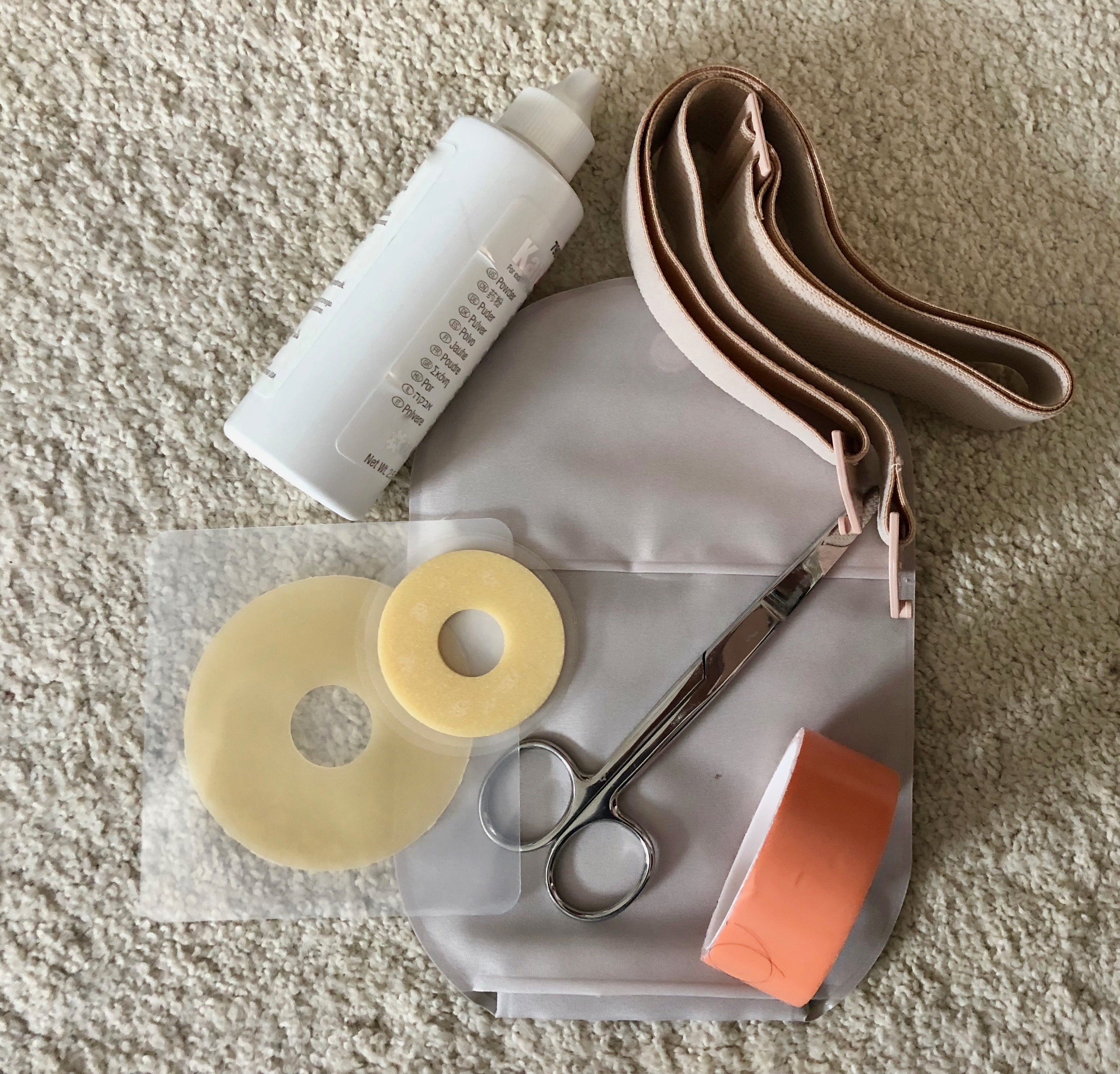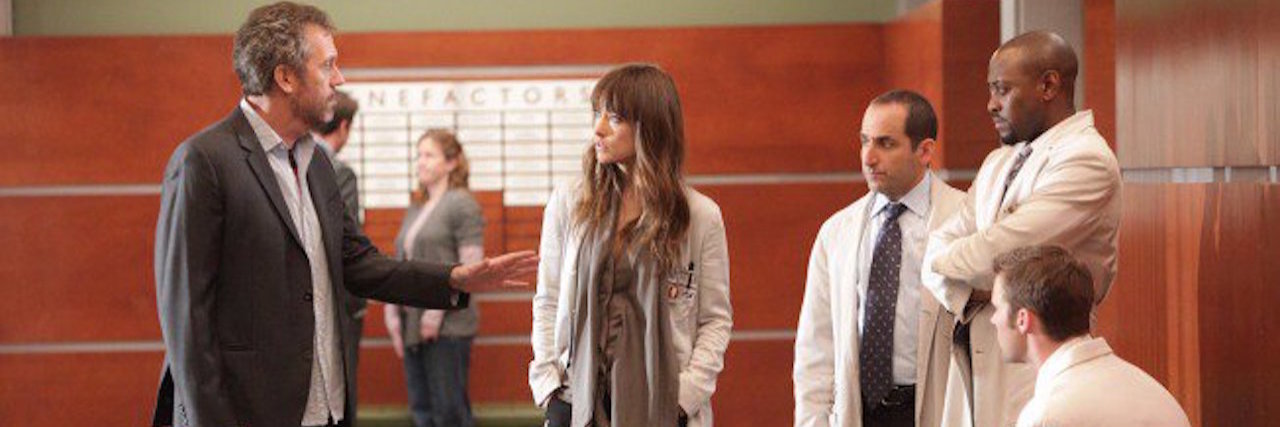If you are like me, you like to watch medically based television shows and find yourself diagnosing the fictional patient before the TV doctors (or before the script allows). Knowing so much more than the average, non-medical personnel generally knows, I often notice questionable content and sketchy information that would totally get passed the average TV watcher! But, what bothers me the most, given my own life with Crohn’s and the last 18 years with an ileostomy, is when they present Crohn’s and ostomies as something transient and/or easily diagnosed, quickly treated – and then mysteriously gone, all in the allotted 42 minutes.
Many years ago on the TV show “ER,” there was a shooting in the emergency room and one of the hunky main male characters was shot, and his colon was severely damaged. So, at the end to the season as their cliffhanger, the
doctor was left in ICU in critical condition – with an ostomy. I was floored. They actually said, “ostomy” on TV and they broached the topic of something that, even now, is still considered taboo to speak of in polite company. So, they break for the summer and September rolls around and the return of the show.
I sat waiting for the first episode of the new season because I wanted to see how they addressed his shooting and ostomy in the new storyline. I kept thinking they had an amazing opportunity to educate and inform people affected with the disease, as well as those who have no understanding or knowledge of it at all. The episode began and the character entered the ER in a panic, barking orders at the nurses and orderlies, and I quickly realized that his TV ostomy would never again be mentioned! How miraculous! I wrote the show’s network and told them they were doing a huge disservice with this type of ignoring and ignoring of what could have been a really powerful storyline. I also explained that for those of us living with ostomies, we weren’t’ able to just “write it out” in the next episode of our lives…I was pissed!
Since then, Crohn’s disease has shown itself more prominently on television shows, but they do tend to allow the disease to easily fit the limited timeframe of the show – which doesn’t happen in real life. So, this has brought me to ask the eternal question: why don’t these TV shows look at presenting these story lines with accuracy and do justice to the millions of people who live with the disease and/or surgical alteration every day?
About eight years ago I became ill with a very mysterious set of symptoms which were kind of directly related to my autoimmune history, but very muddy in their ability to be diagnosed, and still are to some degree. These symptoms created a huge frustration among my core team of doctors, as well as myself. My wife and I jokingly said we needed to get me to “Dr. House.” Although he might try to kill me with the treatment, or act in a less than doctorly manner while he was diagnosing me, the fictional Dr. House would be able to figure this out and fix it quickly!

So, why don’t television shows dare to address these storylines and present them with honesty and accuracy? I have four simple theories.
1. Shows generally have MDs or RNs on staff to provide continuity and validity of the storyline, and often actually utilize real nurses in their surgical and ER situations to add to the realness of the information they are presenting. But, they rarely employ a gastroenterologists (GI) or a Crohn’s trained, educated, and experienced GI – or, heaven forbid, an actual patient to support these specialty storylines. I feel they rely on the same level of knowledge that is often able to be found on a Crohn’s disease or ostomy Wikipedia page.
2. Talking about diversion surgery that allows for feces to exit the body in any way other than what was intended scares the crap (pun intended) out of most people. Unless you are looking at it in a comedic way, such as the famous diarrhea scene in the movie, “Bridesmaids,” storylines about bowels are not seen as popular or desirable by the general public, unless they are to totally make fun of people!
3. Just as most people with Crohn’s fear the possible outcome of needing an ostomy, the rest of the world often has an even greater fear of this topic. I was told by someone who doesn’t have inflammatory bowel disease (IBD) and who learned of my need for my original ostomy surgery, “Ugh, I could never live with that…I’d rather die!” Yes, she really said that, and she was my friend! So, I have to understand that people without IBD, or even irritable bowel syndrome (IBS), don’t want to hear about this – nor do they want to think about someone, “With a bag!” And, if you believe in the “follow the money” mindset, ostomy supply companies aren’t paying for time to advertise during these shows, so those storylines will remain as hidden as the companies themselves and the supplies they sell.
4. Ostomies are created for myriad medical reasons, IBD only being one of them. Both colon cancer, rectal cancer, ovarian cancer, and uterine cancer sometimes metastasizes and impacts the bowels requiring this life-saving surgery, just to name a few. If we start actually talking about the realities of these types of diseases and possible outcomes of these cancers, we have to face that it isn’t just the “other people” who might end up needing an ostomy, but the average person and that topples their elitist mindset that, “Whew,” this could never happen to them! Let’s be honest, no one wants to scare the public since the public can then choose not to watch the program…we are back to “follow the money.”
So, with all this in mind, I openly offer myself as a potential consultant for any television show or movie who feels they need to actually address these diseases and surgeries in a realistic manner. I am tired of seeing the ostomy I have openly lived and thrived with for 18 years, and the disease I have fought for 40 years, both reduced to a five minute sound bite that is diagnosed, addressed and treated in a single episode – with no real recognition that it is really anything more than an easily reversible surgery, or a momentarily bad stomach ache.
Photo courtesy of the “House” Facebook page

